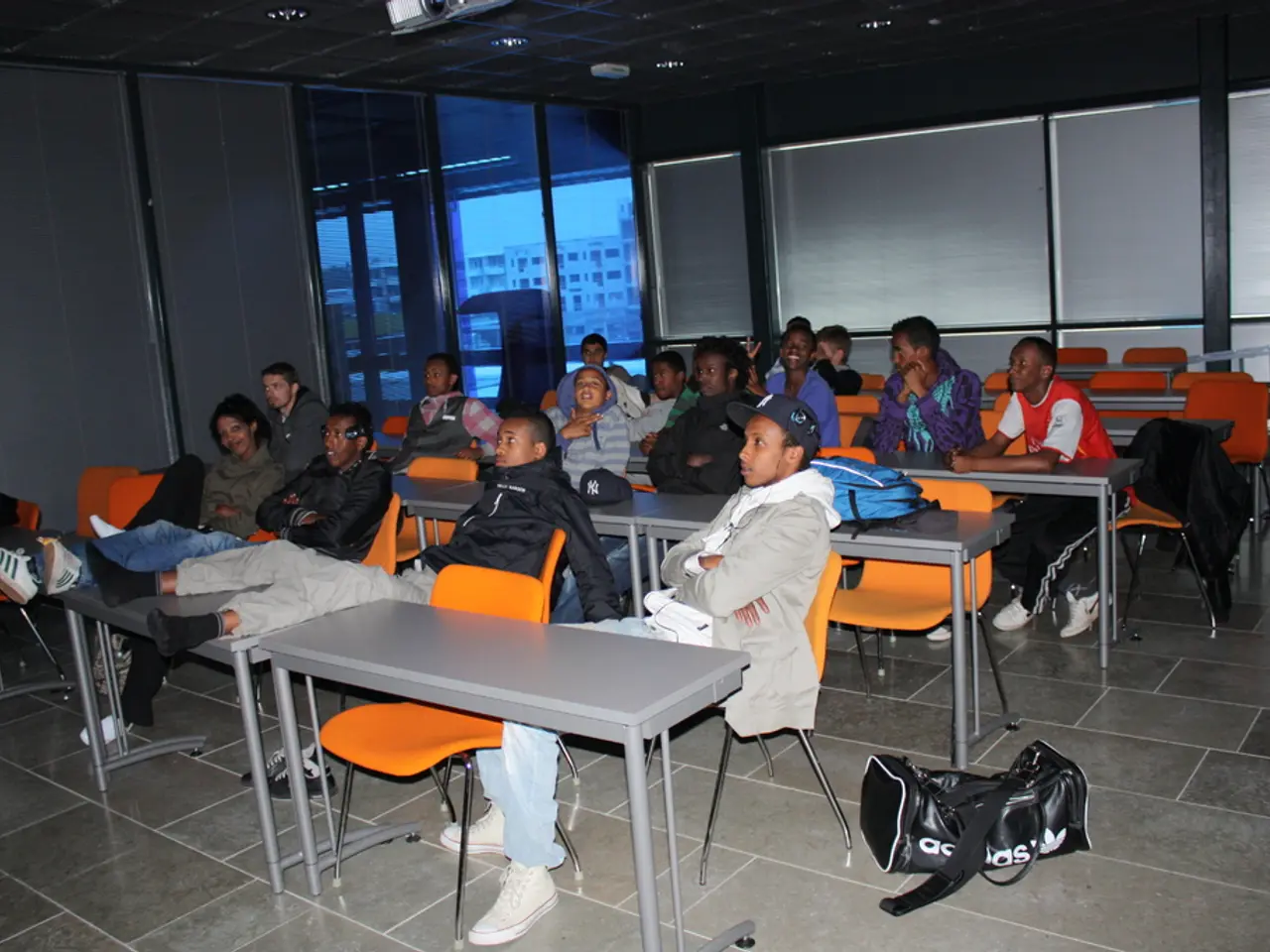Struggling with space and staff shortages, schools confront an increasing need for full-time personnel
=====================================================================
In the district of Sigmaringen, Baden-Württemberg, all-day care (Ganztagsbetreuung) for primary school children has been a focal point of educational policy, aiming to support working parents and promote equal opportunities. However, despite the district's general commitment to strengthening all-day school programs, local challenges persist.
Widespread but Uneven
Many federal states in Germany have expanded all-day care offerings, often integrated with schools or as extracurricular programs. Yet, availability, quality, and financing vary significantly. The German government encourages all-day care to improve family-work balance, support child development, and reduce educational disparities.
Specific Challenges in Sigmaringen, Herbertingen, and Bad Saulgau
The towns of Sigmaringen, Herbertingen, and Bad Saulgau face unique hurdles in implementing all-day care.
Infrastructure Limitations
Many primary schools in these towns struggle with inadequate physical space to expand all-day care facilities. Renovation or construction of dedicated buildings for afternoon care is costly and time-consuming.
Staffing Shortages
Recruiting qualified educators and caregivers for all-day programs is a persistent issue. Competition with other social service sectors and insufficient pay exacerbates shortages.
Funding Constraints
Although the state provides subsidies, municipalities often lack sufficient funds to cover all operational costs. Budget constraints hinder the extension of program hours or the improvement of care quality.
Coordination and Organizational Issues
Integrating all-day care with regular curriculum schedules sometimes leads to logistical challenges. Communication between schools, parents, and care providers requires improvement.
Parental Demand and Socioeconomic Factors
Demand for all-day care fluctuates, and in some areas, socioeconomic diversity calls for differentiated offers. Addressing the needs of families with varying work schedules and cultural backgrounds remains complex.
Recent Developments
Local administrations in the Sigmaringen district have been working towards expanding all-day care by planning new constructions and applying for state funding. Pilot projects and partnerships with community organizations aim to enhance program variety and accessibility. Efforts to improve staff training and working conditions are underway to attract more personnel.
For example, the Geschwister-Scholl-School in Sigmaringen operates a two-part care model: a paid core time in the morning and a free lunch care covered by volunteers. However, the school faces uncertainty regarding meeting the demand due to a lack of volunteer personnel for the coming school year.
In Bad Saulgau, the city council has decided to apply for a restructuring at the government presidency, starting from 2026/27, to run the school as a full-day school in the choice form with the 3/8 time model. Starting from the 2025/26 school year, the new Brechenmacher primary school in Bad Saulgau will open with expanded full-day care.
Looking Ahead
Addressing the challenges in all-day care requires a comprehensive approach that considers infrastructure, staffing, funding, coordination, and parental demand. While progress is being made, it is crucial to continue efforts to ensure that all primary school children in the Sigmaringen district have access to reliable, high-quality all-day care.
In the Region of Sigmaringen, Baden-Württemberg, personal-growth and learning opportunities for primary school children are a significant focus, especially in terms of education-and-self-development through all-day care. However, specific challenges such as infrastructure limitations, staffing shortages, funding constraints, coordination and organizational issues, and varying parental demand hinder the implementation and improvement of all-day care programs. Despite these obstacles, local administrations are working to expand all-day care, focusing on infrastructure improvements, securing funding, improving staff training, and addressing parental needs for reliable, high-quality all-day care.




